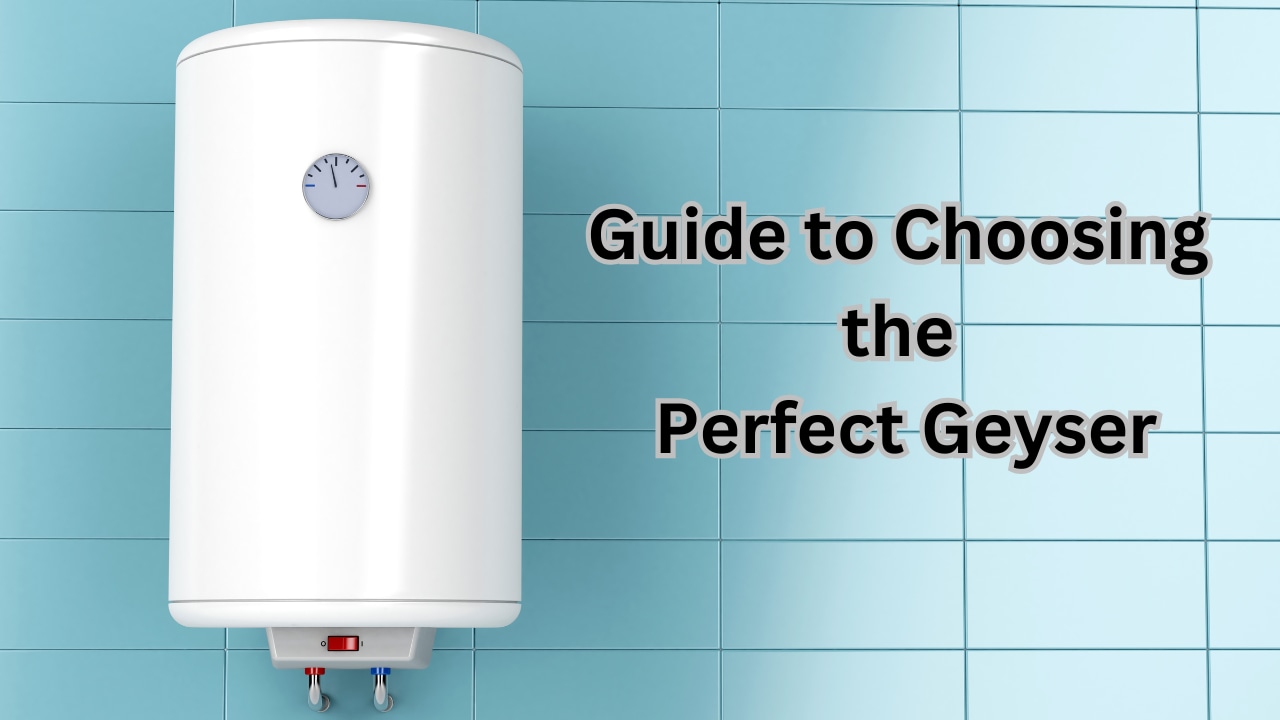Winter’s chill necessitates a dependable source of hot water, and in India, the geyser is the preferred choice. With so many options available in the market, selecting the right one can be challenging. This guide is designed to put you in the driver’s seat, helping you make an informed decision and ensuring a seamless selection process.
Assessing Size Requirements
Determining the right size is crucial for ensuring efficiency and meeting your household’s needs. Evaluate your hot water requirements based on the number of people and their usage patterns. A 10-15 litre geyser may suffice for individuals or couples, like Bajaj 10 L Storage Water Geyser and Havells 10 L Storage Water Geyser. Families of 3-5 often find 25-litre models adequate, while larger households may require 35 litres or more. Larger capacities, however, consume more energy and require more installation space. Balancing size with energy needs and available space is key to making a practical choice.
Electric vs Gas Geysers
Once size requirements are clear, consider the power source. Geysers in India primarily operate on electricity or gas. Electric models dominate due to easy installation and accessibility. However, gas geysers can be cost-effective for larger families with higher hot water needs. Some of the examples are the Havells 6 L Gas Water Geyser and the V-Guard 6 L Gas Water Geyser. Before opting for gas, consider the initial installation expenses and the availability of gas lines or gas cylinder connections in your area. Understanding these factors ensures you select a geyser that aligns with your household’s infrastructure.
Instant vs Storage Water Heaters
The choice between instant and storage water heaters depends on your lifestyle and usage patterns.
- Instant Water Heaters: These heaters provide hot water on demand without storing it in a tank. They are compact, energy-efficient, and ideal for smaller households or limited-space areas. Some examples are Hindware Smart Appliances 5 L Instant Water Geyser and Orient Electric 5.5 L Instant Water Geyser. However, their flow rate may be insufficient for simultaneous use across multiple outlets, making them less suitable for larger households.
- Storage Water Heaters: These heaters store hot water in an insulated tank, ensuring a steady supply for extended use. They are ideal for households with multiple bathrooms or consistent hot water needs. Although they take up more space and may consume slightly more energy due to reheating, their reliability makes them a preferred choice for larger families.
Energy Efficiency
Rising energy costs make efficiency a key consideration. Opt for geysers with high BEE (Bureau of Energy Efficiency) ratings. A 5-star rating ensures optimal efficiency, leading to significant savings on your electricity bills. Features like thick PUF (polyurethane foam) insulation also minimize heat loss, maintain water temperature longer, and reduce the need for frequent reheating. This approach not only saves energy but also adds to long-term savings, making you a smart and savvy homeowner.
Key Safety Features
Safety is non-negotiable when selecting a geyser. Essential features to prioritize include:
- Thermostat: Prevents overheating by regulating water temperature.
- Thermal Cut-out: Automatically shuts off power if the thermostat fails.
- Pressure Release Valve: Prevents excessive pressure buildup, reducing the risk of explosions.
Incorporating these safety measures ensures peace of mind and a secure experience for your household.
Managing Hard Water Challenges
Hard water can cause damage to geysers over time, leading to scaling and corrosion. If you live in an area with hard water, choose geysers with features that help mitigate these effects:
Glass-lined or Titanium-enamel Coated Tanks: These materials resist corrosion and scaling.
Magnesium Anode Rod: This component protects the tank and heating element by attracting corrosive elements.
You can enhance durability and reduce maintenance issues by selecting a geyser designed to handle hard water.
Evaluating Smart Features
Modern geysers come equipped with advanced features that enhance convenience and functionality:
- Digital Temperature Control: Allows precise adjustments.
- Timer Functions: Automates operation for convenience and energy savings.
- Remote Controls: Enhances user experience with wireless control options.
While these features improve usability, they also increase costs. Carefully assess whether these enhancements align with your budget and daily needs.
Warranty Considerations
A robust warranty ensures peace of mind and long-term reliability. Prioritize geysers with extended warranties on critical components like the inner tank and heating element. Some brands offer up to 10 years of warranty, though comprehensive coverage often ranges between 2 to 3 years. Investing in a reliable warranty plan safeguards against unexpected repair costs.
Budgeting and Pricing
Geyser prices vary widely depending on brand, capacity, and features. Establishing a realistic budget early on narrows down choices and prevents overspending. Balancing affordability with quality ensures a satisfactory purchase.
Importance of User Reviews
Before making a final decision, read reviews and ratings from users of the model you’re considering. Real-world feedback provides insights into performance, reliability, and customer satisfaction. Learning from others’ experiences can help you avoid pitfalls and select the best option.
By carefully considering these factors, you can confidently select a geyser that suits your household’s needs, budget, and lifestyle while ensuring comfort and efficiency during the colder months.

